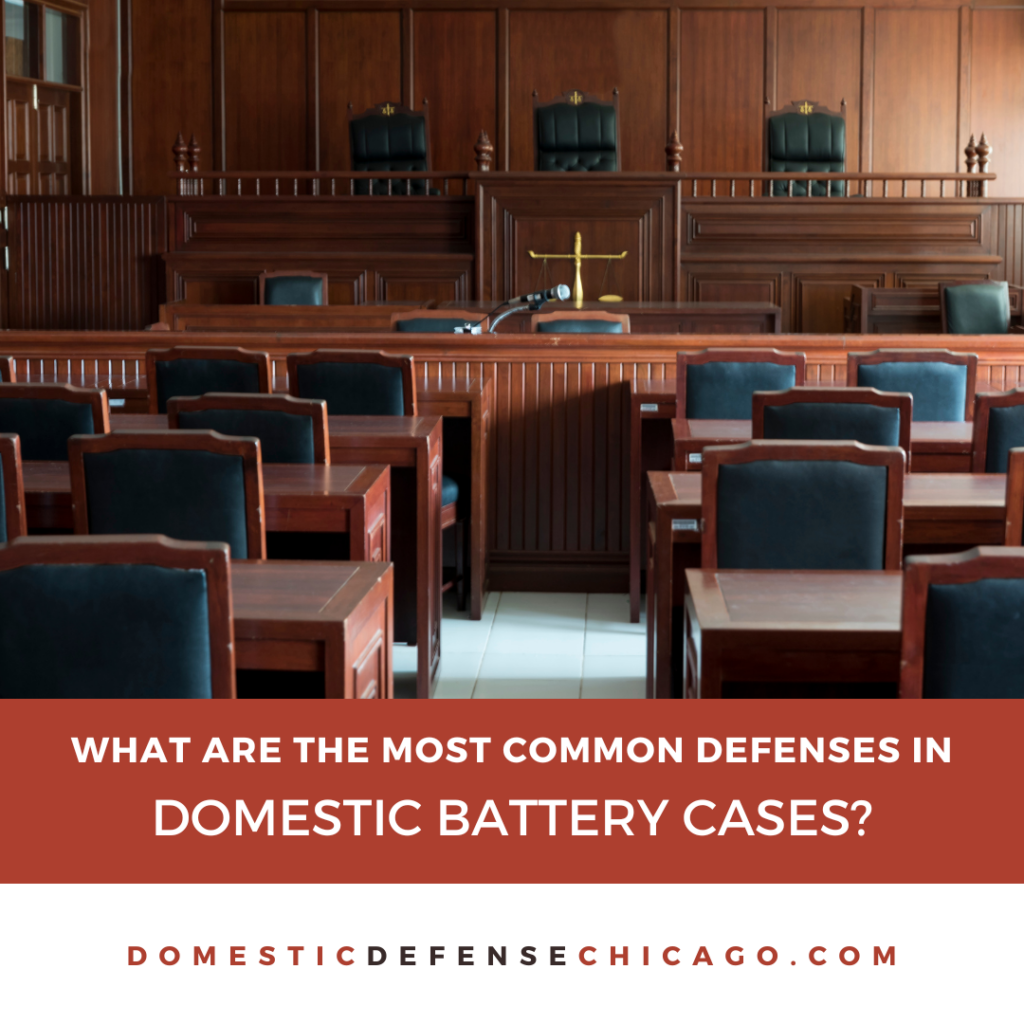Facing charges of domestic battery can be a stressful experience. Understanding the common defenses used in these cases is crucial, especially if you’re considering hiring a lawyer to represent you.
What Are the Most Common Defenses Used in Domestic Battery Cases?
This guide delves into the typical defenses employed in domestic battery cases, providing a clearer understanding of your options. It covers:
- Self-defense
- False accusations
- Lack of evidence
- Consent
- Defense of others
Here’s a closer look at each.
Self-Defense
One of the most common defenses in domestic battery cases is self-defense. This argument is used when you claim that your actions were a necessary response to protect yourself from imminent harm. For this defense to be valid, it must be shown that your perception of threat was reasonable and that the force used was proportionate to the threat faced.
Related: 3 things you MUST do if you’re falsely accused of domestic battery
False Accusations
False accusations are unfortunately not uncommon in domestic battery cases. This defense involves proving that the allegations against you are untrue. Evidence such as alibis, witness testimony, or video footage can be crucial in these cases.
Lack of Evidence
In some domestic battery cases, the prosecution may not have enough evidence to prove the charges beyond a reasonable doubt. If the evidence is weak or unreliable, it can be used as a defense to challenge the prosecution’s case.
Consent
In certain situations, consent can be a valid defense. This applies when the alleged victim had given consent to the act that led to the battery charge. This defense is more common in situations involving consensual physical activities that may be misinterpreted.
Related: Can my ex drop domestic battery charges against me?
Defense of Others
Similar to self-defense, the defense of others strategy is used when you claim that your actions were necessary to protect another person from immediate harm. This defense requires showing that you had a reasonable belief that the person you were defending was in real danger and that your response was appropriate to the situation.
FAQ About Defenses in Domestic Battery Cases
Here are some commonly asked questions about defenses in domestic battery cases.
Can I Claim Self-Defense in a Domestic Battery Case?
Yes, self-defense can be claimed if you can demonstrate that you were protecting yourself from imminent harm and that your response was reasonable.
What Should I Do if I’m Falsely Accused of Domestic Battery?
If you’re falsely accused, it’s important to contact a lawyer immediately. They can help gather evidence to support your defense and protect your rights.
Related: Domestic battery in Illinois, explained
How Can I Prove Lack of Evidence in My Case?
Proving lack of evidence typically involves challenging the reliability or sufficiency of the prosecution’s evidence. A lawyer can help identify weaknesses in the prosecution’s case.
Is Consent a Valid Defense in Domestic Battery Cases?
Consent can be a defense in certain situations, particularly if the physical contact was part of a consensual activity.
How Can a Lawyer Help in a Domestic Battery Case?
A lawyer can help by evaluating the evidence, developing a strong defense strategy, and representing you in court. Their experience in handling similar cases can be invaluable.
Related: Illinois domestic violence law
Domestic battery cases can be complex, and the right defense strategy can significantly impact the outcome. Understanding these common defenses and working with a lawyer who can navigate the legal system effectively is crucial in protecting your rights and achieving the best possible result.
Do You Need to Talk to an Attorney About Domestic Battery Defense?
If you need to talk to a domestic battery defense attorney in Illinois, we’re here to help. Call us at 847-920-4540 now – we’ll be happy to give you a free consultation and talk to you about your options.







Leave A Comment
You must be logged in to post a comment.